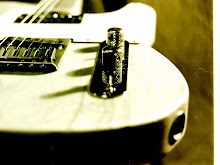I first saw the following video clip a couple of years ago, but I just stumbled across it again the other day on YouTube. It is one of the most impressive tributes I’ve seen or heard. (I’m sure there are more monumental ones to figures like Gandhi or Mother Theresa, but I haven’t heard them. I’ve heard this.)
“What is it?” you wonder. It’s Robert Plant’s 2007 tribute to Jimmy Page on the occasion of the legendary guitarist receiving yet another lifetime achievement award from some British music magazine . Only someone as close to the source as Plant was could have so precisely articulated the scope of Page’s brilliance.
Despite his notable shortcomings (e.g., sketchy song attribution on a few occasions and years of severe drug addiction), Page has long been a musical hero of mine. His considerable catalog of great work represents an unparalleled mixture of songwriting brilliance, guitar technique (not always masterful, but ever inspired and charismatic) and mastery of the recording studio. With Led Zeppelin, he conceived and directed the greatest rock band of all time.
Whatever your field of endeavor, you could only hope that one day someone might say something akin to this about your vision, commitment and accomplishments.






